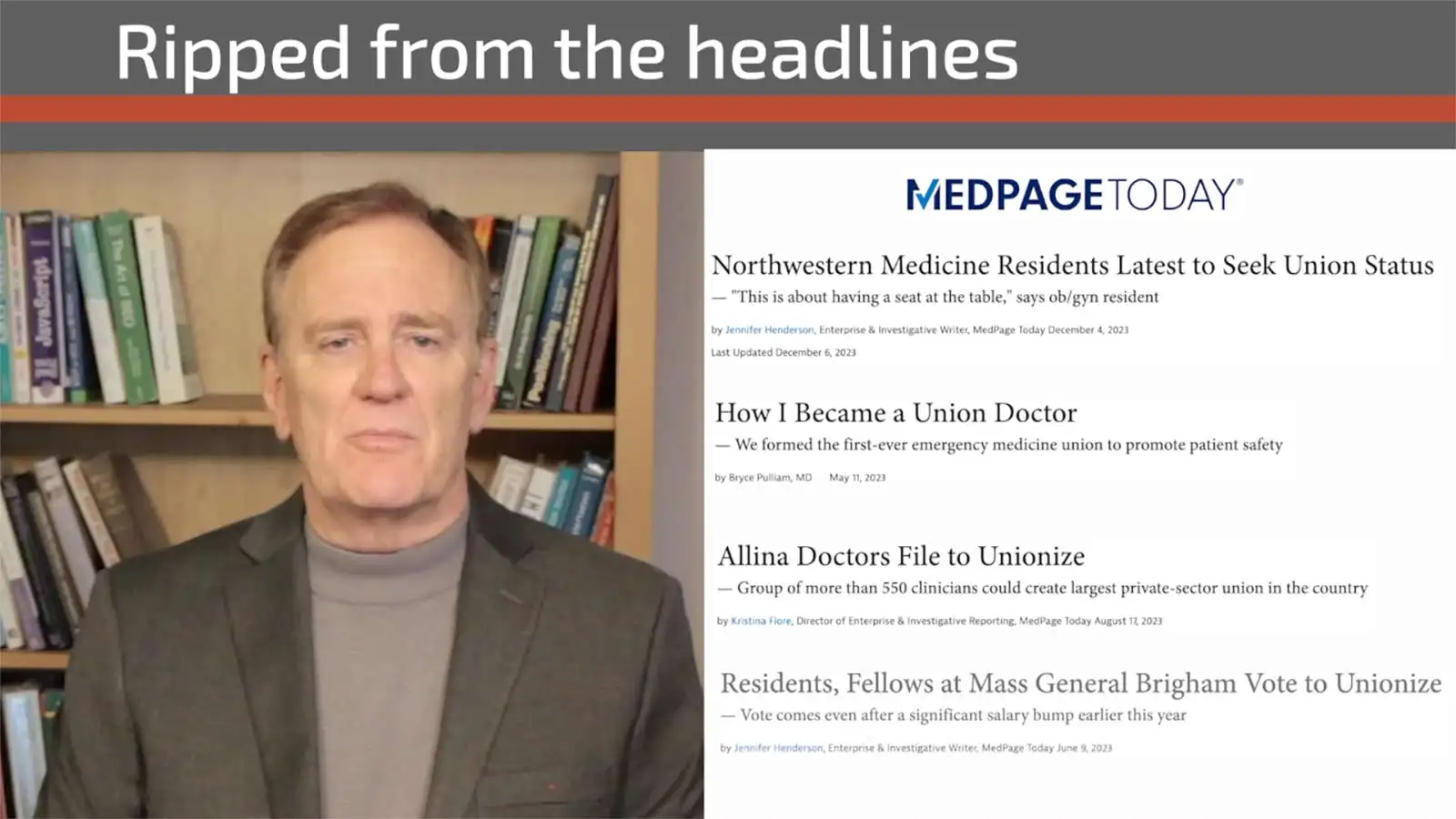At least three federal agencies have jointly announced a cross-government investigation into the growing role of private equity (PE) and other corporate firms in American healthcare. In this video, healthcare marketing consultant Ron Harman King, JD, MS, argues that the trio of investigating agencies — the Federal Trade Commission (FTC), the Department of Justice, and the Department of Health and Human Services — should not stop at looking only into PE-owned health facilities and practices. Following is a transcript of his remarks: It should be taken as no small sign of the changing times that no less than three federal agencies have jointly announced a cross-government investigation into the growing role of private equity and other corporate firms in American healthcare. A Federal Trade Commission press release recently announced the inquiry and asserted that private equity and corporate takeovers of healthcare, quote, “may lead to a maximizing of profits at the expense of quality care,” end quote. According to one study, private-equity-backed roll ups in healthcare increased by a factor of six in a decade. Other studies have sounded the alarm over worrisome decreases in quality of care. For example, a study published in The BMJ uncovered a link between private-equity investment and cost increases for payers and patients as high as 32%. Another study reported that nursing homes owned and operated by private-equity firms were associated with 20,000 additional deaths over a 12-year period. Corporatization of healthcare has also created a plethora of near-monopolies. One analysis found that in each of more than one-fourth of the nation’s metropolitan areas, a single private-equity firm employs more than 30% of full-time-equivalent physicians. Today, nearly three-quarters of doctors are employees as independent practitioners sell out to corporate entities. However, I argue that the trio of investigating federal agencies — the FTC, the Department of Justice, and the Department of Health and Human Services — should not stop at looking only into PE-owned health facilities and practices. Non-profit entities should also be fair game. To this point, let us note that protesting nurses and physicians are forming unions right and left, from residents at Northwestern Medicine in Chicago to emergency medicine docs in Oregon to more than 550 providers at Minneapolis-based Allina Health Systems to residents and fellows at Mass General Brigham in Boston, clinical professionals are unionizing over what they say are deteriorating working conditions, pressures to do more in less time, and grossly compromised patient care – all in pursuit of the almighty dollar. For example, Allina, which operates more than 100 hospitals and clinics, ended its policy of cutting off services to patients who had accrued at least $4,500 in outstanding bills only after a New York Times investigation revealed the practice. Nurse-to-patient ratios are another recurring theme. In Illinois, a survey of registered nurses statewide found that one-third were considering quitting the profession within the next 12 months. The top reason, given by 98.4% of respondents, was unsafe staffing levels. In Kansas City, nurses picketed outside HCA Healthcare-owned Research Medical Center this month amid allegations that patients have been left waiting for days in emergency department beds due to inpatient understaffing. To be fair to private equity firms, some make the case that PE ownership can increase productivity and operational efficiencies, often to the betterment of care. For instance, a 2022 JAMA -published study found that the injection of private capital into 578 acquired dermatology, gastroenterology, and ophthalmology practices resulted in increased patient encounters while also growing their share of outpatient visits lasting longer than 30 minutes. In addition, an American Hospital Association report claims that acquisitions, mergers, and partnerships have saved certain hospitals from closures and have helped reduce costs while enhancing the quality of care. Anecdotally speaking, I can confirm notable improvements at the corporately-owned primary care practice where I’ve been a patient for two decades. Since its acquisition a dozen or so years ago, the practice’s addition of a very useful patient portal, as well as improvements in appointment scheduling and physician-patient communications, have been quite supportive. At the same time, my internist reports working more hours than ever, as many as 80 per week. Further, he recently told me that his only increase in income has been due to a small boost in Medicare reimbursements. Moreover, in comparison, the physician-owned dermatology practice I regularly visit performs a little better in the aforementioned areas of a portal, scheduling, and communications. My PCP [primary care provider] is not alone in his sentiments. Among 525 physicians responding to a JAMA Internal Medicine survey, three out of five (60.8%) viewed private-equity investment in healthcare negatively. Only one in ten (10.5%) saw it positively. The key point here is that Americans spend more on healthcare than 38 other high-income nations and get less for it. The U.S. has the lowest life expectancy at birth and the highest death rates for avoidable or treatable conditions and is the only industrialized nation without universal health coverage. Healthcare is the only essential service every American consumes without exception. So, I ask this: Does anyone believe that the federal government, and we as providers and patients alike, cannot invest a lot more into finding ways to treat a terribly sick healthcare system? If you believe we can, then the feds would like to hear from you. Investigators are asking healthcare professionals and patients alike for input on their experiences working in and navigating merged or acquired provider groups. Send your comments online by May 6. Who knows? It could make a difference. Ron Harman King, JD, MS, is CEO of Vanguard Communications, a healthcare marketing and practice management consulting firm, and the author of The Totally Wired Doctor: Social Media, the Internet & Marketing Technology for Medical Practices. He blogs for MedPage Today on the topics of technology, the law, and the patient experience.

Leave a Reply